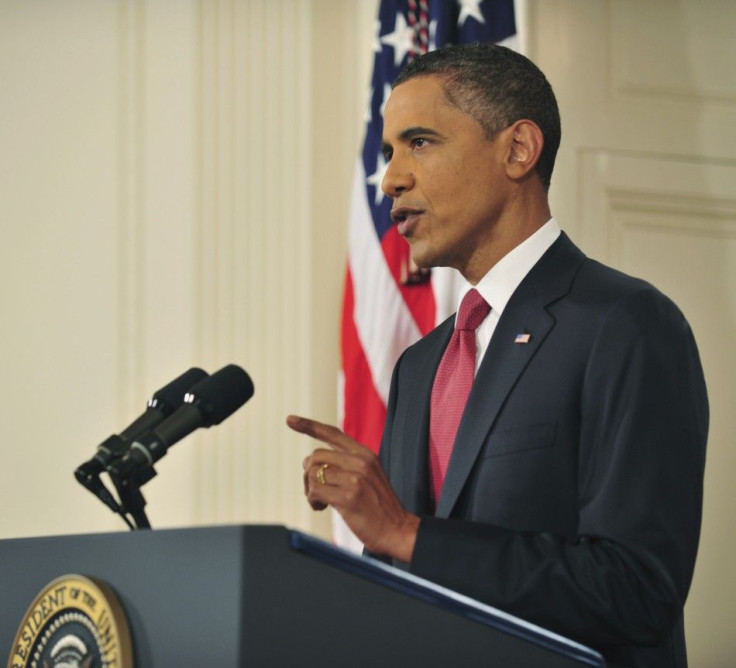Lawmakers head for showdown in debt crisis

President Barack Obama's Democrats and their Republican rivals on Tuesday headed for a showdown over competing debt plans one week before a deadline for averting a potentially disastrous U.S. default.
With the two sides further apart than ever and the threat of a far-reaching U.S. credit downgrade looming, IMF chief Christine Lagarde urged swift resolution of the impasse, warning that failure to reach an agreement would have serious consequences for the world economy.
"The clock is ticking and clearly the issue needs to be resolved immediately," Lagarde told the Council on Foreign Relations think tank.
But there was no compromise in sight after Obama and Republican House of Representatives Speaker John Boehner delivered dueling televised addresses late on Monday and gave no ground in the bitter debate over how to raise the nation's $13.4 trillion debt ceiling by August 2 to prevent an unprecedented default.
The continuing gridlock -- and signs that neither of the competing plans is likely to win bipartisan support -- alarmed investors worldwide. U.S. stocks and the dollar fell while gold hovered near record highs.
But there was no hint of panic as the financial markets held out hope that the stalemate could still be broken.
Boehner on Tuesday kept up efforts to rally support for his plan, which could come up for a vote in the House as early as Wednesday but is in doubt because of resistance from some conservatives in the Republican camp aligned with the Tea Party movement.
"It's reasonable, it's responsible. It can pass the House and it can pass the Senate," Boehner told reporters.
Boehner is pushing a two-stage deficit reduction plan that would start with an initial $1.2 trillion in savings over 10 years. Obama opposes it because it would raise the debt limit for only a few months, something he has said he will not agree to.
The chief Democratic vote counter in the House, Representative Steny Hoyer, said "maybe a few" Democrats would back Boehner's plan. That would boost the bill's chances in what is expected to be a close vote on Wednesday.
Obama's Democrats have presented their one-step plan for $2.7 trillion in deficit reduction over the next decade but with a debt limit hike that would carry through the November 2012 elections, when he is seeking a second term.
Senate Majority Leader Harry Reid, a Democrat, is expected to hold off on any vote on the plan until the House takes up Boehner's proposal.
FAR APART
Republican and Democratic lawmakers, despite weeks of intense talks, are far apart on a deal to reduce the budget deficit, which would clear the way for Congress to lift the debt ceiling by next week, when the country runs out of cash to pay all of its of its bills. Democrats control the Senate. Republicans control the House of Representatives.
Credit rating agencies have threatened to downgrade America's top-notch Treasury bonds if a rise in the debt limit is not accompanied by plan for controlling long-term deficits. A default and downgrade could push the United States back into recession and create global financial chaos.
A key element of the standoff has been congressional Republicans refusing to allow any tax increase in deficit reduction packages.
Obama said in his Monday address a default would inflict the equivalent of a tax hike on all Americans by pushing up borrowing costs on things like credit card loans and mortgages, but he sought to assure markets a deal could be reached.
"I have told leaders of both parties that they must come up with a fair compromise in the next few days that can pass both houses of Congress -- a compromise I can sign. And I am confident we can reach this compromise," he said in his speech.
Markets responded warily to Obama's remarks. Major U.S. stock exchanges were down less than half a percent in early trading. The dollar fell across the board, hitting a record low against the safe-haven Swiss franc.
Gold, seen as another safe haven from the American and European debt woes, rose to a record high on Monday and hovered near that level on Tuesday. However, financial markets are not showing any sign of panic.
© Copyright Thomson Reuters 2024. All rights reserved.





















